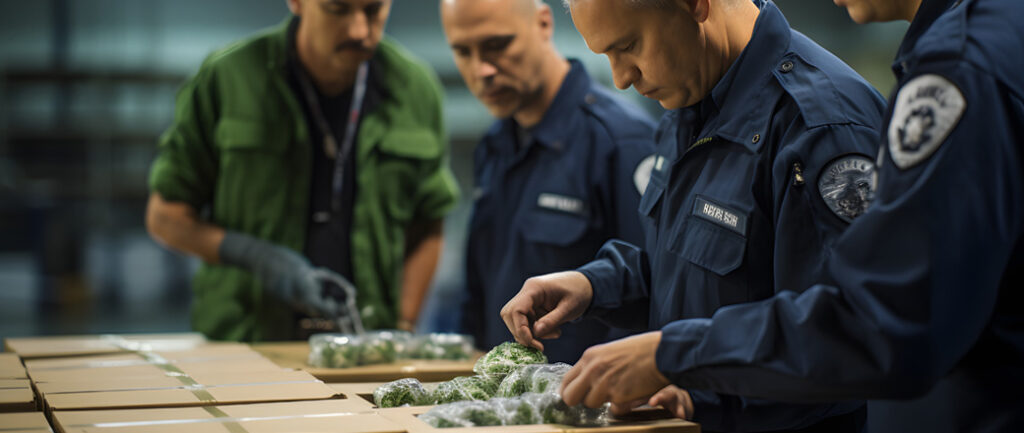When importing goods into the U.S., consider the Partner Government Agency (PGA) list and U.S. Customs and Border Protection (CBP) as the border’s bouncers. Together, they work assertively to guarantee your goods are safe and compliant with the nation’s high standards.
As an importer, you know how frustrating and costly delays and compliance issues can be. Maybe you’ve had shipments held up because of a minor paperwork error or faced fines for unknowingly breaking a rule.
Understanding the Partner Government Agency Environment
Partner Government Agencies and Their Regulatory Oversight
Collaboration with CBP
Their collaboration helps speed trade up, but the most essential aspect of their work is safety. CBP and the Partner Government Agencies police against everything from unsafe products and unfair trade practices to intellectual property theft. They’re on the front lines, using programs like the Customs-Trade Partnership Against Terrorism (CTPAT) AQUA Lane pilot program to reduce market delays for sea-borne imports and offer tangible time and cost savings to compliant traders.
Partner Government Agency List and Roles
- Department of Agriculture (USDA): The USDA protects agricultural health and quality. APHIS fights off pests and diseases, FSIS checks that meat, poultry, and eggs are safe to eat, and AMS oversees marketing standards. FAS promotes U.S. agriculture around the world.
- Department of Health and Human Services (HHS): HHS oversees public health. The FDA checks that drugs, medical devices, and food imports are safe and effective. The CDC focuses on disease prevention, while the CPSC ensures consumer products are free from potential hazards.
- Department of Commerce: This department manages economic policies and standards for imports. NMFS within NOAA protects marine resources, and the Office of Textiles and Apparel monitors textile imports for compliance with trade agreements.
- Department of Transportation: DOT regulates imported vehicles through NHTSA, which checks that all vehicles entering U.S. markets meet safety standards.
- Department of Justice: DOJ oversees controlled substances and firearms imports through ATF and DEA, maintaining compliance with U.S. laws and regulations.
- Department of the Interior: This agency manages natural resources and wildlife imports through the Fish and Wildlife Service, focusing on conservation and preventing harmful impacts on ecosystems.
- Department of the Treasury: Through TTB, the government regulates the importation of alcohol and tobacco, confirming that they comply with U.S. tax laws and regulations.
- Environmental Protection Agency (EPA): EPA applies environmental laws to imports, such as chemicals and vehicles, protecting public health and the environment.
Key Considerations for Importers
Following U.S. import rules can feel like an impossible task, but getting it right keeps your business running smoothly while avoiding unnecessary headaches.
- Proper Classification: Categorize your imports correctly under the Harmonized Tariff Schedule (HTS). Think of it as labeling your goods in a language U.S. Customs understands; getting this right means paying the correct taxes and avoiding delays.
- Documentation Accuracy: Dot your i’s and cross your t’s on all import paperwork – bills of lading, invoices, customs declarations, you name it. Mistakes here can lead to delays, fines, or even your goods being held at the border.
- Compliance with Regulatory Requirements: Stay sharp and keep up with the latest rules set by each Partner Government Agency. Rules change. Staying informed means keeping compliant and out of trouble.
- Risk Assessment and Mitigation: Regularly check for any risks that might disrupt your compliance. Identifying these early lets you strategize to fix them before they become real problems, like scrutinizing suppliers more closely or testing products more rigorously.
- Engagement with Trade Partners: Don’t go it alone – work with customs brokers, freight forwarders, and regulatory consultants who can help you navigate the complexities of import regulations.
Calculate your potential Saving While Using an enterprise TMS
Mastering Imports with MercuryGate
MercuryGate is here to help. From our Transportation Management System (TMS), which streamlines shipment planning, to Claims Management, which helps recover lost revenue, we have solutions that shine when it comes to imports.
Need to minimize risks? Product Integrity & Compliance tracking keeps everything in check.
Are you worried about customs? Customs & Trade Compliance automates the process so your goods keep moving smoothly.
Plus, with solutions for global sourcing and multimodal optimization, MercuryGate has you covered, making your supply chain efficient and compliant.
Ready to make your import process smoother and more efficient? Download our Global Trade Solutions eBook, watch our Shipment and Order Visibility V3 webinar, or request a demo today.


